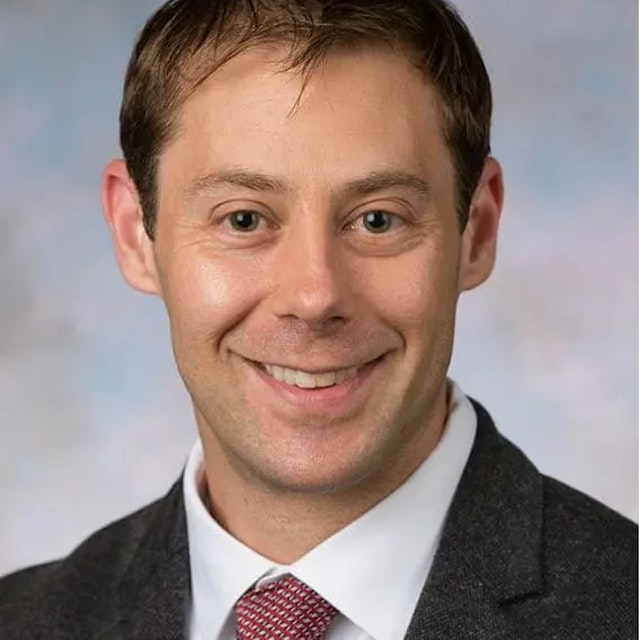Pursuing a pharmacy education is commendable, opening doors to a dynamic and vital healthcare profession. However, the path to becoming a pharmacist is often paved with financial challenges, chief among them being the burden of pharmacy school loans. This path becomes more complicated each year as tuition continues only to rise.
In this comprehensive guide, we will explore the intricacies of pharmacy school loans, highlighting key considerations, available options, and strategies for managing this financial aspect of one's academic journey.
The Landscape of Pharmacy Education Costs
Pharmacy education is known for its rigor and the wide-ranging skills it imparts, from drug interactions to patient care. Yet, this extensive training comes at a cost, and the expenses associated with pharmacy school are substantial and continue to rise. According to the American Association of Colleges of Pharmacy (AACP), the average tuition for an in-state pharmacy program in the United States ranged from $7,000 to $40,000 annually, while out-of-state programs averaged between $17,000 and $58,000 per year in 2021. These figures and other expenses, such as books, housing, and supplies, can lead to a staggering total cost for a PharmD student.
The Role of Student Loans
Many pharmacy students turn to student loans to bridge the gap between the costs of education and personal resources. Federal and private student loans have become a common means of financing higher education, especially pharmacy school. Long gone are the days when newly minted-pharmacists could pay off their school loans within the first few years of employment. Federal loans, backed by the government, often offer more favorable terms, including fixed interest rates, income-driven repayment plans, and potential loan forgiveness programs. On the other hand, private loans are offered by financial institutions and may have variable interest rates and fewer borrower protections.
Federal Student Loan Options
Several federal student loan programs are available to pharmacy students:
Federal Direct Subsidized Loan: These loans are based on financial need, and the interest is subsidized while the student is in school and during certain deferment periods. That means that interest does NOT accrue while the student is in school.
Federal Direct Unsubsidized Loan: These loans are not need-based, and interest accrues from the time the loan is disbursed. Students can defer interest payments until after graduation.
Graduate PLUS Loan: These loans are credit-based and available to graduate and professional students. Interest accrues, and students can borrow up to the cost of attendance minus other student financial aid received.
Student Loan Repayment Strategies
Managing pharmacy school loans effectively involves understanding repayment options and formulating a plan that aligns with one's financial circumstances. Several repayment strategies can ease the burden of loan repayment:
Standard Repayment: This is the default repayment plan, with fixed monthly payments over a 10-year period.
Income-Driven Repayment Plans: Plans like Income-Based Repayment (IBR), Pay As You Earn (PAYE), and Revised Pay As You Earn (REPAYE) base payments on a percentage of the borrower's income, making them more manageable during lower-earning periods. These plans are currently being simplified by the Biden administration, but will continue to exist for the foreseeable future.
Public Service Loan Forgiveness (PSLF): Pharmacists who work for qualifying employers, such as nonprofit organizations or government agencies, may be eligible for loan forgiveness after making 120 qualifying payments while working full-time.
Loan Consolidation: This involves combining multiple federal loans into one, simplifying repayment. However, it may also result in a longer repayment term and higher interest costs.
Private Student Loan Considerations
While federal loans often offer more borrower-friendly terms, some pharmacy students may turn to private loans to cover remaining costs. Private loans vary widely in interest rates and repayment terms, and they may require a co-signer (likely, a parent) if the student has limited credit history. It's crucial to carefully compare offers from different lenders and understand the potential long-term implications of private student loans.
Scholarship and Grant Opportunities
To alleviate the reliance on loans, aspiring pharmacists should actively seek out PharmD scholarship and grant opportunities. Organizations such as the American Pharmacists Association (APhA), the National Community Pharmacists Association (NCPA), and the American Society of Health-System Pharmacists (ASHP) offer scholarships and grants to pharmacy students. Additionally, researching local and regional opportunities can provide financial support. Many pharmacy schools have internal grants and scholarships as well.
Financial Literacy and Loan Management
As pharmacy students embark on their educational journey, it's essential to cultivate financial literacy. Understanding loan terms, interest rates, and the implications of different loan repayment program plans empowers students to make informed decisions. Institutions should prioritize offering resources and workshops on financial management to equip students with the knowledge needed to navigate their loan obligations, but ultimately, it is the student’s responsibility to understand the financial burden of a pharmacy school education.
Final thoughts
Becoming a pharmacist promises a fulfilling career dedicated to patient care and well-being. However, the cost of pharmacy education, often necessitating loans, should be considered. Aspiring pharmacists must approach their educational investment thoughtfully, weighing their options for federal and private loans, repayment plans, and potential student loan forgiveness programs. By combining financial literacy with careful planning, future pharmacists can confidently pursue their academic aspirations while managing the financial challenges associated with pharmacy school loans.
The information provided on this page is for educational purposes only. Always consult with a registered financial advisor before making financial decisions, such as pharmacy school loans.
References
American Association of Colleges of Pharmacy. (2021). Pharmacy School Tuition and Fees. https://www.aacp.org/research/pharmd-and-graduate-programs-tuition-and-fees
Federal Student Aid. (n.d.). Repayment Plans. https://studentaid.gov/manage-loans/repayment/plans
U.S. Department of Education. (n.d.). Public Service Loan Forgiveness (PSLF). https://studentaid.gov/manage-loans/forgiveness-cancellation/public-service
American Pharmacists Association. (2023). Scholarships and Awards. https://www.pharmacist.com/apha-asp-awards-scholarships
National Community Pharmacists Association. (2023). Student Resources. https://ncpa.org/student-resources
American Society of Health-System Pharmacists. (2023). Student Resources. https://www.ashp.org/Pharmacy-Student
